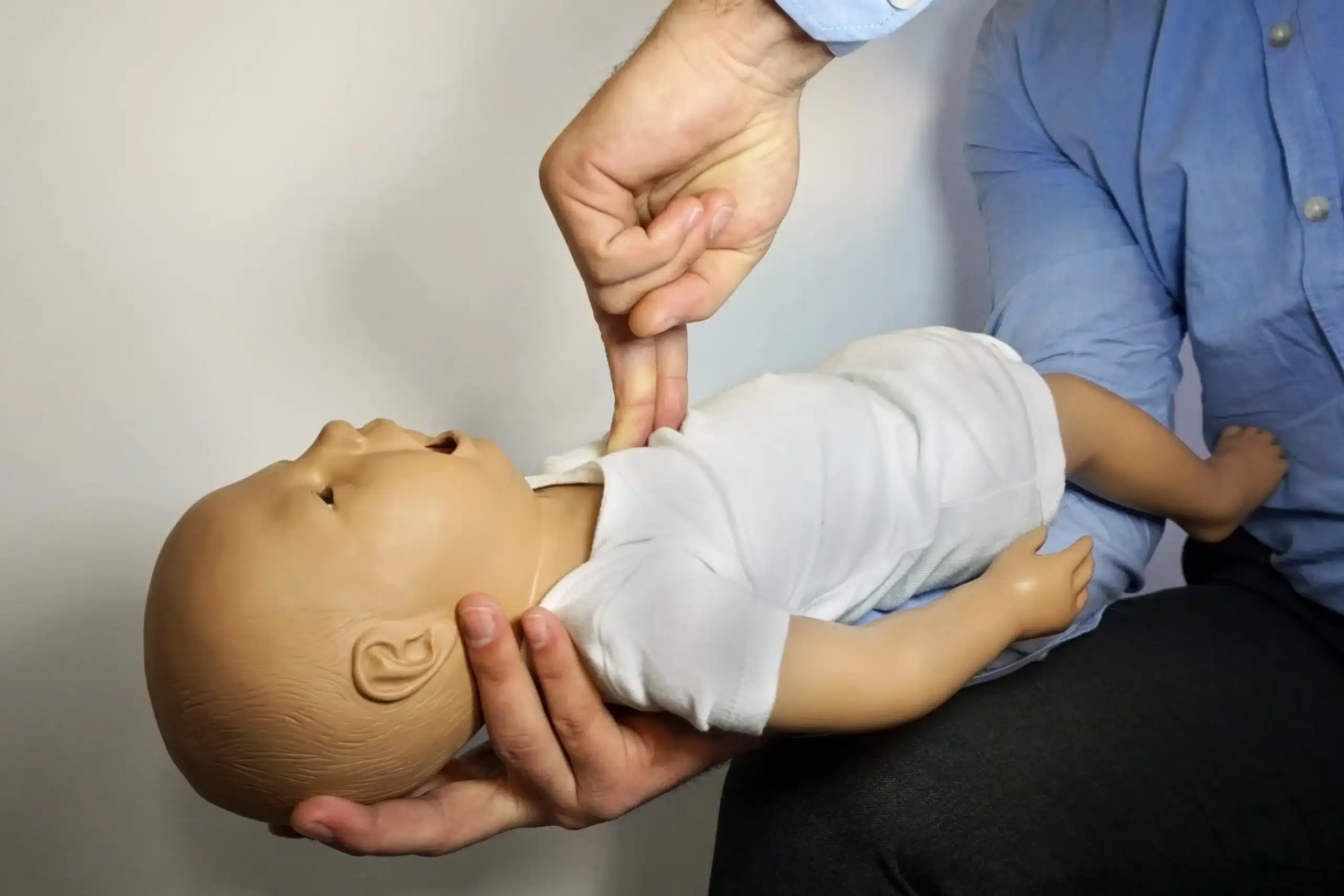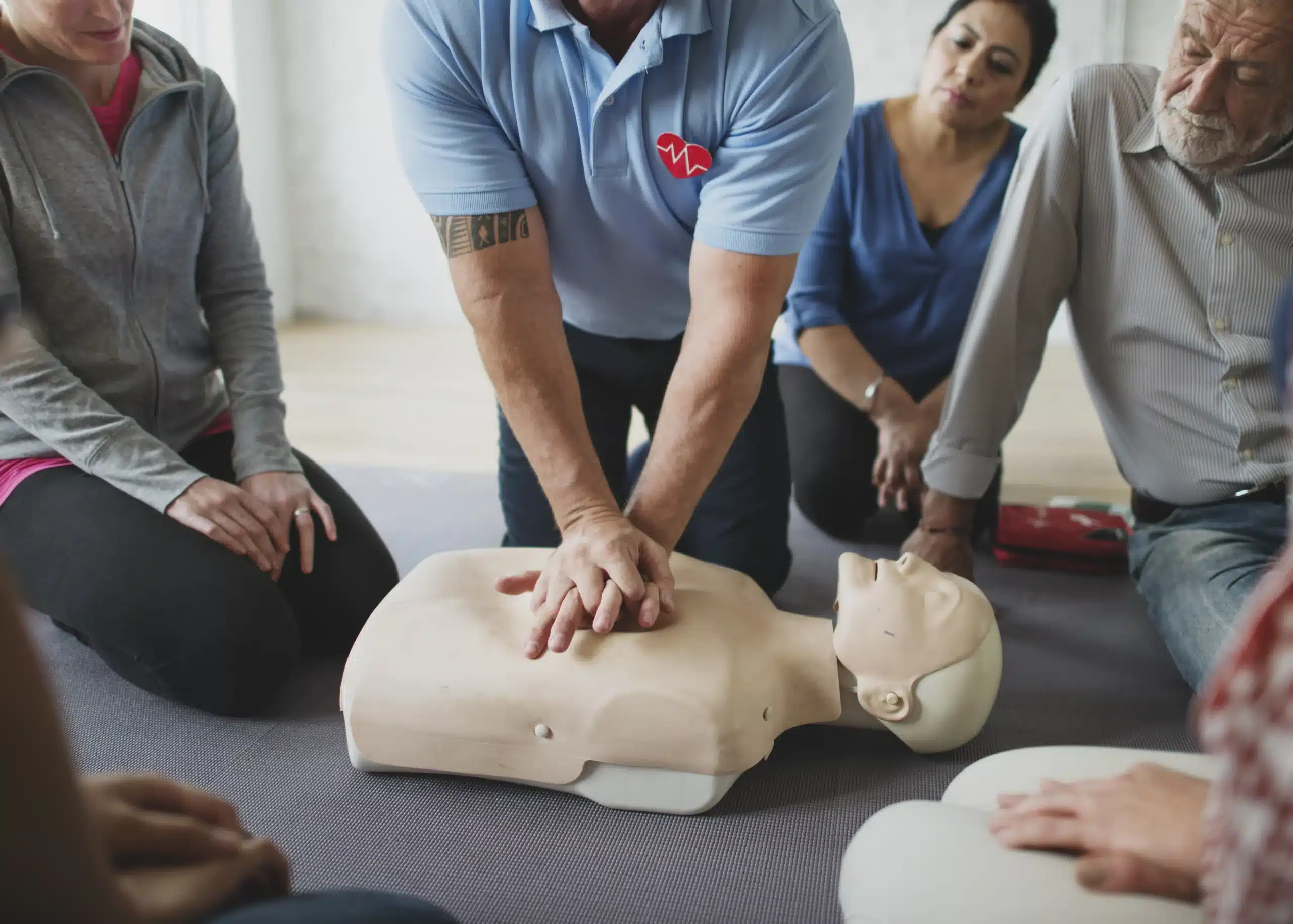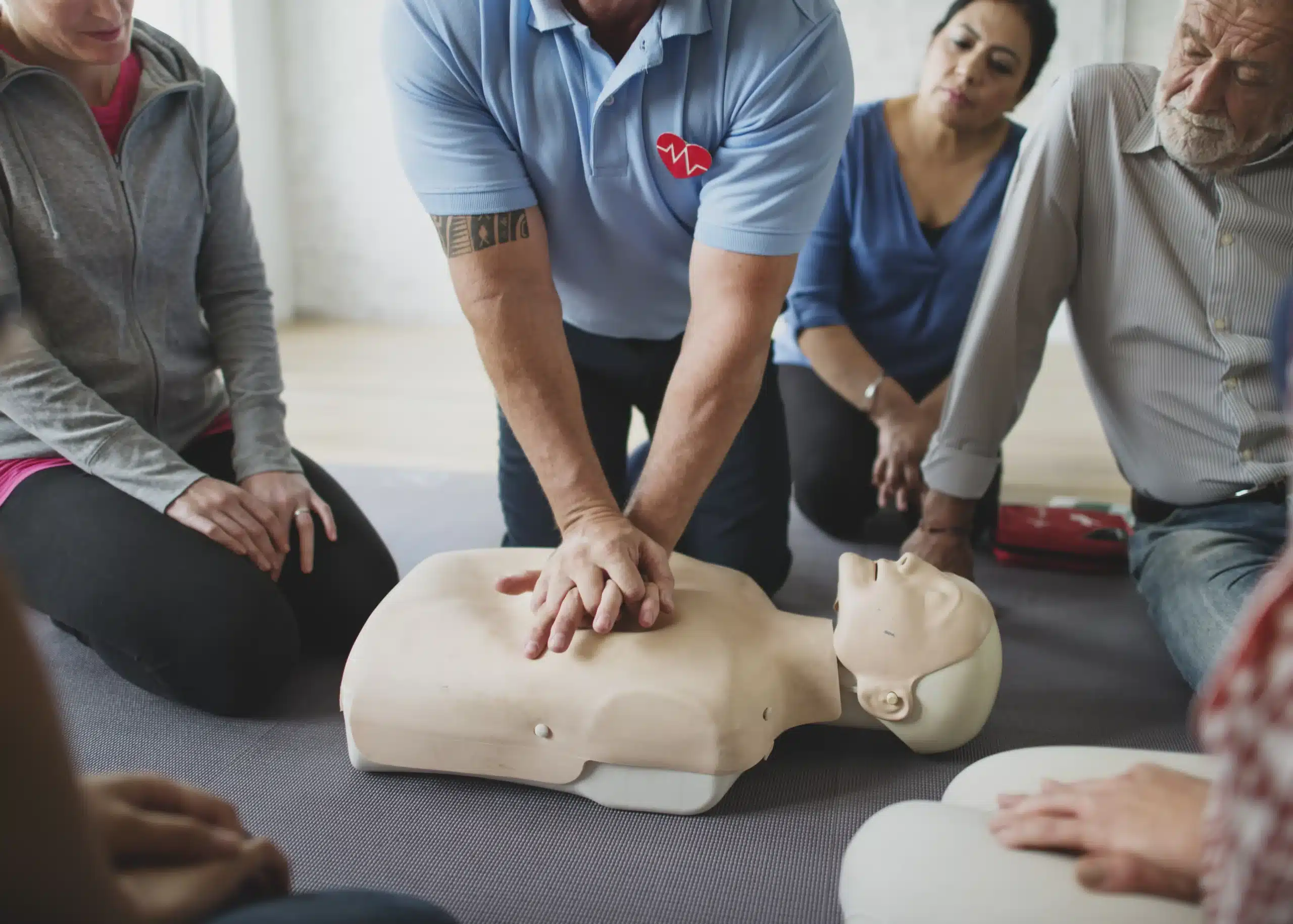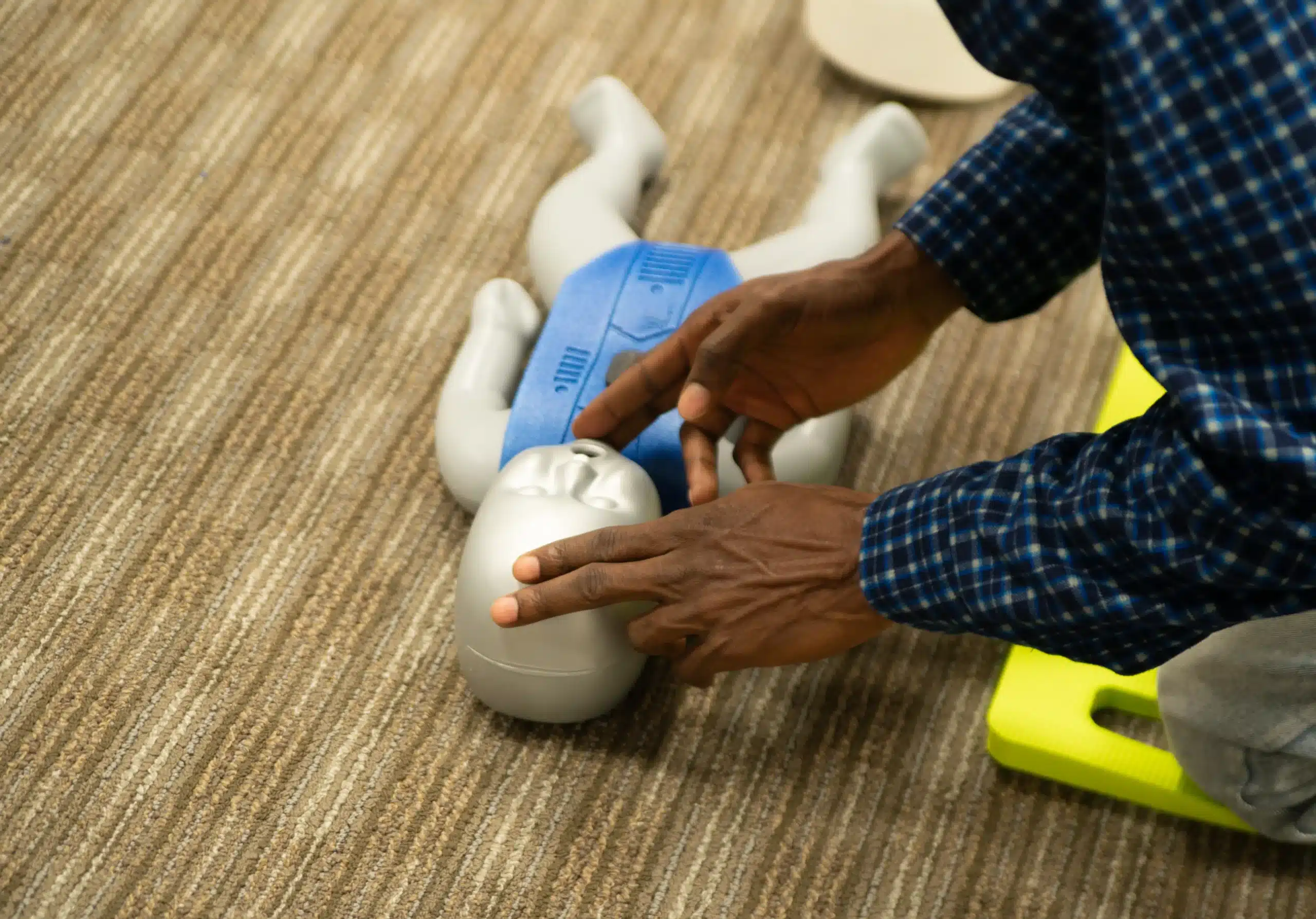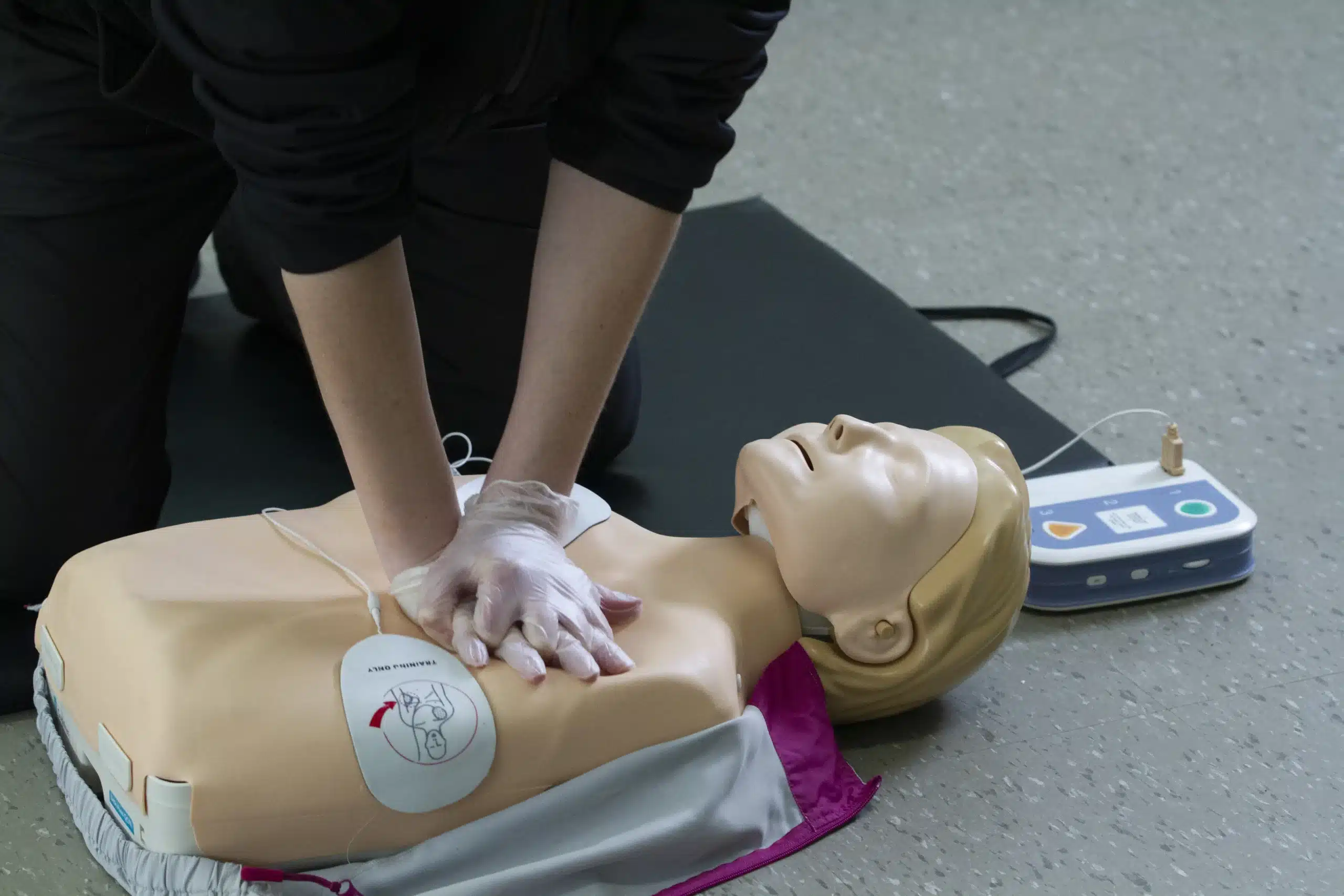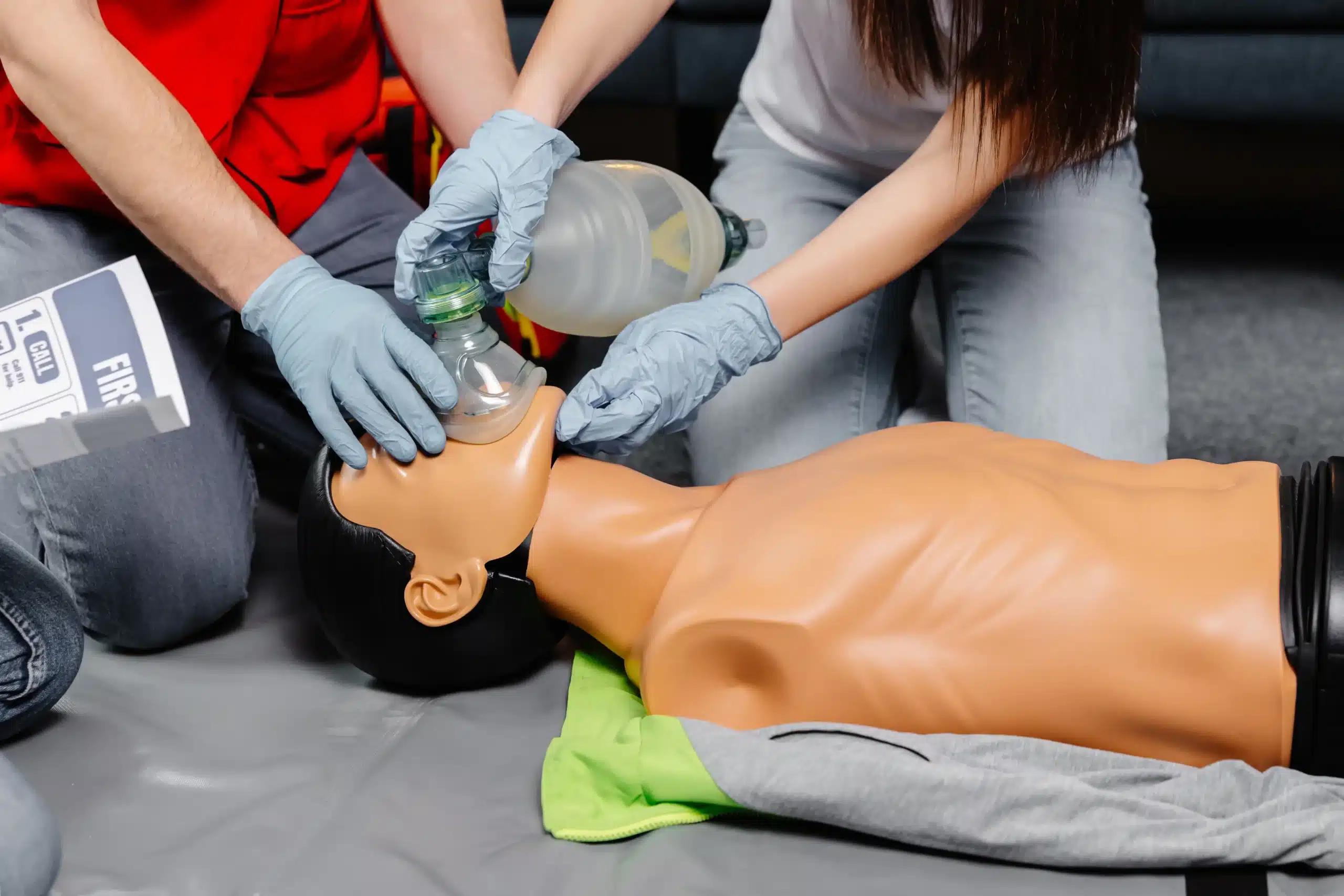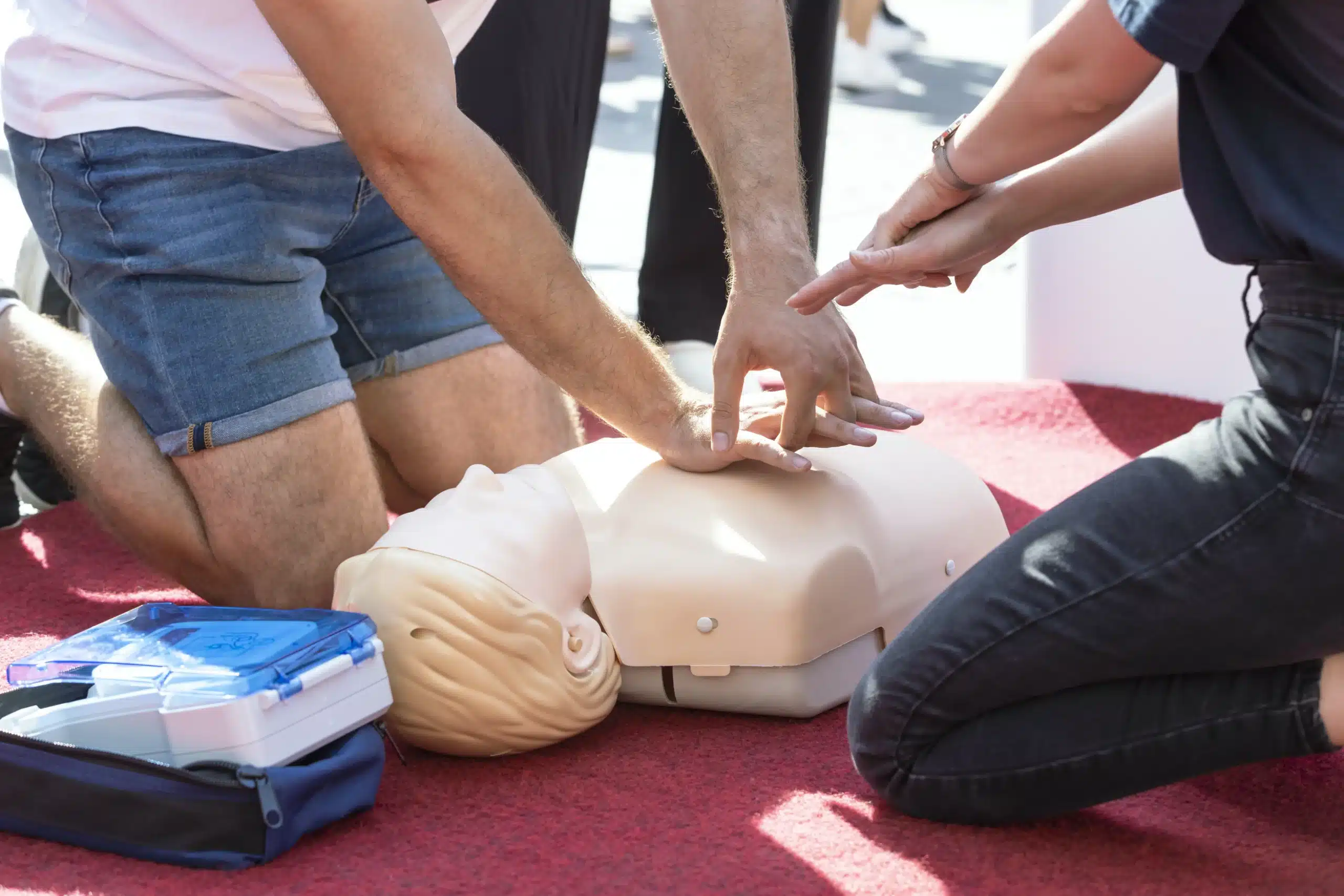Life can throw curveballs, and being equipped to handle medical emergencies is empowering. CPR certification is a powerful tool, but it’s not a one-time achievement. Just like any vital skill, it needs regular upkeep. This guide will walk you through the essentials of CPR renewal in San Jose, helping you find the right course, understand the process, and stay current with the latest guidelines. Whether you’re a seasoned healthcare worker or simply want to be prepared for anything, we’ll make navigating CPR renewal straightforward and stress-free.
Key Takeaways
- Regular CPR renewal maintains life-saving skills. Consistent practice and familiarity with current guidelines ensure confident responses in emergencies. Consider supplemental refresher courses to stay sharp.
- Find a CPR renewal course that balances cost, convenience, and quality. Hands-on, in-person training provides practical experience, while online courses offer flexibility. Compare options from various providers, including Campbell CPR Classes and the American Red Cross, to find the best fit.
- CPR certification benefits everyone. These skills empower anyone to confidently handle emergencies and potentially save lives. Track your certification’s expiration date and plan your renewal ahead of time.
What is CPR Renewal in San Jose?
CPR renewal in San Jose is how you keep your CPR certification current before it expires. CPR certifications are typically valid for two years. To avoid retaking the entire course, you’ll need to renew within a specific timeframe, usually within 30 days of the expiration date. If your certification lapses, a full recertification course will be required. Several organizations in San Jose offer CPR renewal courses, including Campbell CPR Classes, which provide various American Heart Association (AHA) courses like BLS, ACLS, PALS, CPR, and First Aid, with convenient schedules.
Why CPR Renewal Matters
CPR skills are essential for responding to emergencies. Even with a valid certification, regular review and practice are crucial for maintaining those skills. Studies show that CPR skill retention can decrease over time. Renewing your certification helps ensure your skills are sharp and you’re ready to respond effectively in a crisis. A current CPR certification also demonstrates your commitment to these life-saving skills, which can be beneficial for certain jobs or volunteer opportunities.
Common CPR Renewal Myths
One common misconception is that online-only CPR renewal is enough. While some online CPR certifications are accepted, particularly those from reputable organizations accredited by the AHA, many employers and licensing boards require hands-on training as well. Always check the specific requirements for your profession or workplace. Another myth is that CPR renewal is only for healthcare professionals. While CPR certification is vital for healthcare providers, it’s a valuable skill for anyone, including teachers, coaches, parents, and childcare providers. Learning CPR empowers you to respond confidently in emergencies and potentially save a life. Contact us at Campbell CPR Classes to learn more about CPR renewal requirements and options. We also offer discounted group classes.
Top CPR Renewal Providers in San Jose
Finding the right CPR renewal provider can feel overwhelming, but several reputable organizations and training centers in San Jose offer high-quality courses. Here’s a rundown of some top providers to help you in your search:
Campbell CPR Classes
Campbell CPR Classes offers a variety of American Heart Association (AHA) courses, including BLS, ACLS, PALS, and First Aid. They’re known for excellent customer service, a low price guarantee, convenient location in Campbell, and discounted group rates. Serving Campbell, San Jose, and Cupertino, they make renewing your CPR certification straightforward and affordable.
American Red Cross
The American Red Cross offers CPR and First Aid classes in San Jose. These classes provide valuable life-saving skills and meet OSHA requirements for many jobs.
American Heart Association
While the AHA doesn’t directly provide classes, they set the standards for CPR training. You can find various AHA-certified training centers in San Jose offering CPR, BLS, ACLS, PALS, and First Aid certifications. Look for training centers that offer AHA-certified courses to ensure you receive high-quality instruction.
Emergency and Health Training Center
The Emergency and Health Training Center provides AHA-certified CPR classes throughout the San Jose and Bay Area. Their courses are designed to be engaging and focus on hands-on training. They cater to various professions (healthcare, construction, childcare, etc.) and offer group discounts and on-site training.
AED CPR
AED CPR offers online CPR renewal for BLS certification. This can be a convenient option if you prefer a self-paced learning environment. Be sure to check if their online certification meets your specific workplace requirements.
Renew Your CPR Certification: What to Expect
Renewing your CPR certification is straightforward. Here’s a step-by-step guide to help you prepare:
Check Your Certification Expiration Date
Before anything else, check your CPR certification’s expiration date. CPR certifications are typically valid for two years. Start the renewal process a few weeks before it expires. If it’s already expired, you’ll likely have a short grace period (often 30 days) to renew before needing to retake the entire course.
Choose a Course Format
You have options for renewing your CPR certification. Many providers, like Campbell CPR Classes, offer various course formats. See if they offer online registration for their Basic Life Support (BLS) courses to simplify scheduling. Consider what works best for you: a weekday evening, weekend, or blended learning option.
Review Course Content and Duration
CPR renewal courses cover essential life-saving techniques, including chest compressions, rescue breaths, and using an automated external defibrillator (AED). Renewal courses are generally shorter than initial certification, usually lasting between two and four hours. Check with your chosen provider for specifics on course content and duration.
Complete the Hands-On Skills Assessment
The hands-on skills assessment is crucial for CPR renewal. You’ll demonstrate your CPR techniques to an instructor who evaluates your proficiency. Many training centers offering CPR classes provide same-day certification upon completing this assessment.
Get Your Renewed Certification
After you’ve completed the training and skills assessment, you’ll receive your renewed CPR certification. This updated certification demonstrates your ability to provide critical life-saving care. Providers like Safety Training Seminars offer various American Heart Association (AHA) courses, making it easy to find the right renewal course. They often have convenient daily classes in San Jose and surrounding areas.
In-Person vs. Online CPR Renewal: Choose the Right Fit
Renewing your CPR certification is essential for maintaining your lifesaving skills. But with various options available, deciding between in-person and online renewal can feel overwhelming. This section breaks down the key factors to consider, helping you choose the best fit for your needs and learning style.
Get Hands-On Practice
In-person CPR renewal courses offer invaluable hands-on practice. You’ll work directly with a certified instructor who can provide personalized feedback and correct your technique. This direct interaction builds confidence and muscle memory, crucial for effective CPR in real-life emergencies. As highlighted in this CPR classes guide, hands-on training is a cornerstone of effective CPR education.
Find Flexibility and Convenience
Online CPR renewal provides unmatched flexibility. You can learn the basics at your own pace, fitting the training around your busy schedule. This format often involves interactive modules and videos, making it an accessible option for those who prefer self-directed learning. This guide to CPR classes also points out the benefits of this flexible approach for learning CPR principles.
Consider Costs
Cost is a practical consideration for any training. In-person classes typically involve facility fees and instructor time, which can impact the overall price. However, providers like Campbell CPR Classes are known for competitive pricing and offer a low price guarantee. Online options might appear cheaper upfront, but factor in any additional costs for in-person skills testing, often a requirement for certification.
Ensure Certification Validity
Regardless of the format you choose, ensure your CPR renewal course provides a valid certification recognized by your employer. Look for courses that align with the latest American Heart Association (AHA) guidelines, as these are widely accepted. Safety Training Seminars offers a comprehensive selection of AHA-compliant courses.
Improve Skill Retention and Application
The best CPR renewal courses combine theoretical knowledge with practical application. Blended learning formats, which incorporate online learning and in-person skills practice, can be particularly effective for skill retention. As explained in this guide to BLS classes, this combined approach reinforces learning and improves your ability to apply CPR skills confidently in real emergencies.
CPR Renewal Costs and Value in San Jose
Knowing the price of CPR renewal and its value is crucial when choosing a course. Let’s break down how to evaluate both cost and quality.
Compare Average Course Pricing
CPR renewal costs in San Jose vary based on the provider, the type of certification (BLS, ACLS, PALS, etc.), and the course format (in-person or online). Comparing pricing from different providers is always a good idea. For a helpful overview, check out our guide to CPR certification in San Jose. Remember, the cheapest option isn’t always the best—consider the value you receive.
Find Discounts and Promotions
Many CPR training providers offer discounts and promotions, especially for groups or returning students. Keep an eye out for these deals. Checking social media can sometimes reveal limited-time offers. For example, Campbell CPR Classes occasionally posts flash sales on Facebook.
Learn About Campbell CPR Classes’ Low Price Guarantee
At Campbell CPR Classes, we’re committed to providing high-quality training at competitive prices. We’re confident we offer the lowest prices in Santa Clara County, backed by our Low Price Guarantee. We’ll match any lower advertised price for the same course. Contact us to learn more.
Invest in Quality Training
While cost matters, the value of CPR training lies in the quality of instruction. A comprehensive BLS course covers essential life-saving skills, including CPR, AED use, and airway management. This knowledge empowers you to confidently respond to medical emergencies. Investing in quality training means investing in your ability to make a difference. Consider also adding RQI training to your skillset.
Latest CPR Guidelines and Best Practices
Staying up-to-date on the latest CPR guidelines and best practices is crucial for providing effective, life-saving care. These guidelines are regularly reviewed and updated, often every five years, to reflect current scientific evidence and improve outcomes. Let’s explore some key aspects of these practices.
Focus on High-Quality CPR
High-quality CPR emphasizes effective chest compressions and rescue breaths. This includes compressing the chest at the correct depth and rate, allowing for complete chest recoil after each compression, and minimizing interruptions. Proper technique ensures adequate blood flow and oxygen delivery to vital organs during cardiac arrest. Consistent, high-quality CPR can significantly improve a person’s chances of survival. For hands-on training and certification in Campbell, consider Campbell CPR classes.
Use AEDs
Automated External Defibrillators (AEDs) are portable devices that analyze heart rhythms and deliver an electric shock if needed to restore a normal heartbeat during sudden cardiac arrest. The latest guidelines stress the importance of using AEDs as quickly as possible. They are designed to be user-friendly, with clear voice prompts guiding you through each step. Early use of an AED can dramatically increase the likelihood of survival.
Perform Bystander CPR
Bystander CPR, performed by someone who witnesses a cardiac arrest, is a critical link in the chain of survival. Immediate action by a bystander, even before professional help arrives, can make a profound difference. Don’t hesitate to initiate CPR if you encounter someone in cardiac arrest. Your actions can buy valuable time and potentially save a life. Check our CPR renewal courses to refresh your skills and maintain your certification.
Practice Infection Control
Protecting yourself and the person you’re helping is paramount. Infection control measures during CPR are essential. These measures may include using protective barriers like gloves and masks and practicing good hand hygiene. Following these precautions minimizes the risk of infection transmission during CPR. Learn more about safety and infection control in our CPR classes.
Maintain Your CPR Skills and Plan Future Renewals
CPR isn’t a one-and-done deal. It’s a skill that requires upkeep, much like knowing how to drive. Even after you get your driver’s license, you need to keep practicing to stay safe on the road. Similarly, maintaining your CPR skills is crucial for responding effectively in a real emergency.
Practice Regularly
Even with a valid CPR certification, regular review and practice are essential. Studies show that CPR skill retention fades within months. Think about it: if you only perform CPR every two years during your recertification course, you’re unlikely to recall the proper techniques under pressure. Set aside time each month to refresh your memory. You can practice compressions and breaths on a CPR manikin or even visualize the steps. Every bit of practice helps solidify those life-saving skills. For convenient CPR renewal options, check out Campbell CPR classes.
Take Refresher Courses
Consider taking refresher courses between renewals. These short courses can boost your confidence and address any updates to CPR guidelines. They’re a great way to stay sharp and ensure you’re providing the highest quality care. Check with your local training centers, like Campbell CPR Classes, for available refresher courses and information on CPR renewal.
Stay Informed on Guidelines
CPR guidelines can change as new research emerges. Staying up-to-date on the latest recommendations is vital for delivering effective CPR. Before registering for any CPR or additional training, check with your licensing board for their current guidelines and requirements. Resources like the American Heart Association website are also excellent sources for staying informed.
Plan Your Next Renewal
CPR certifications are typically valid for two years. Mark your renewal date on your calendar and set reminders. Renewal must occur within a specific timeframe, often 30 days of expiration. Otherwise, you might need to retake the entire certification course. Planning ahead saves you time and ensures you’re always ready to respond to an emergency. Check out Campbell CPR Classes’ renewal options to find a course that fits your schedule.
Related Articles
- CPR Certification in San Jose: A Complete Guide
- CPR Renewal in Campbell: Your Complete Guide – Campbell CPR Classes
- CPR Myths Debunked for Better First Aid
- Discounted CPR Classes in Santa Clara County – Campbell CPR Classes
- Your Guide to BLS Classes in San Jose – Campbell CPR Classes
Frequently Asked Questions
How often do I need to renew my CPR certification? CPR certifications are typically valid for two years. It’s best to begin the renewal process a few weeks before your certification expires to avoid any lapse in your qualification.
What if my CPR certification has already expired? There’s often a grace period, usually around 30 days, after expiration where you can still renew. However, if you miss this window, you’ll likely have to retake the entire CPR certification course. Check with your certifying organization or employer for their specific policy.
What’s the difference between CPR renewal and recertification? CPR renewal is a shorter course for those whose certifications are still current or recently expired (within the grace period). Recertification involves taking the full course again, which is required if your certification has been expired for an extended period.
Are online CPR renewal courses accepted? While online CPR renewal courses offer flexibility, many employers and organizations require a hands-on skills assessment component. Always verify whether a purely online course meets the requirements of your workplace or licensing board. Some blended learning options combine online coursework with in-person skills practice.
How can I find a reputable CPR renewal provider in San Jose? Look for providers offering courses that align with the latest American Heart Association (AHA) guidelines. Check reviews and compare pricing. Consider factors like location, schedule flexibility, and instructor experience when making your decision. Reach out to providers directly if you have specific questions about their courses.


